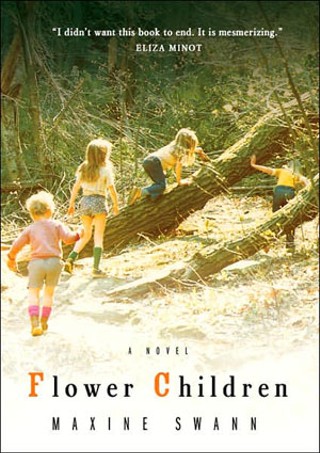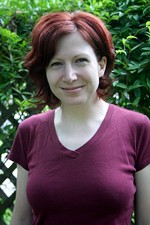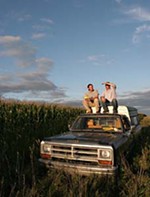Temples and Playgrounds
Previewing the 2007 Texas Book Festival, Nov. 3-4
By Marrit Ingman, Fri., Nov. 2, 2007

Flower Children
by Maxine SwannPenguin, 211 pp., $21.95
In the beginning, they live according to their needs. They need a house; they build one, with a dirt-floor kitchen and a single toilet in the hallway. Rules are inessential, so they have none. Nothing is secret – not the pot in the garden, not the father's girlfriends and the mother's boyfriends and the orgiastic parties, not the babysitter's rose tattoo – and they immerse themselves in the mysteries of nature.
But Flower Children is no hippie idyll. In its patchwork of juxtaposed vignettes, Maxine Swann's novel-in-stories opens the eyes of its youthful protagonists – wide not with innocence but with curiosity – to a shifting panorama of worldly spectacle: their parents' fractured marriage, their father's ashram and girl troubles and lousy apartment, their bourgeois Long Island grandmother, and the fascinating and dangerous Kalowski boys, new in town.
Its first chapter, which won the Pushcart and O. Henry prizes when published as a short story in Ploughshares, conjures with measured, hypnotic prose a dreamlike vision of the tiny havens siblings create for one another in the wilderness expanse of childhood.
Like a mirage, the book's first segment seems too perfectly self-contained and too oblique to build upon. So instead of constructing a linear narrative, Swann flashes forward in elliptical skips and jumps, orienting the reader only with brief asides ("I'm eleven, Lu's thirteen") and clues from her context. She shifts point-of-view and tense starkly, from the coolly detached, omniscient retrospection of a visit to a bizarre ancestral New England compound to the breathlessly present-tense recountings of road-trip drifting by second daughter Maeve in the first person. Sometimes the children are characterized individually, and sometimes they function as a unit of generational meaning, equally confounded by lip gloss and a family intervention that devolves into a recital of The Stranger.
These chapters don't fit together seamlessly, but like a mosaic made of dissimilar pieces, they form a total picture, held in place by the luminous simplicity of Swann's prose in each mode. Her voice is not austere but beautifully plain and precise, each detail salient and carefully observed. Not a light read in spite of its brevity, Flower Children immerses its reader fully.
That Seventies Panel
With Margaret Sartor and Norris Church Mailer
Saturday, Nov. 3, 3pm
Senate Chamber
Lit Smackdown: Fiction vs. Nonfiction
With Andrew Helfer, Eric Martin, Emily Rapp, George Saunders, Wesley Stace, Vendela Vida, and Amanda Eyre Ward
Saturday, Nov. 3, 8pm
Gallery at the Continental Club (1315 S. Congress)








